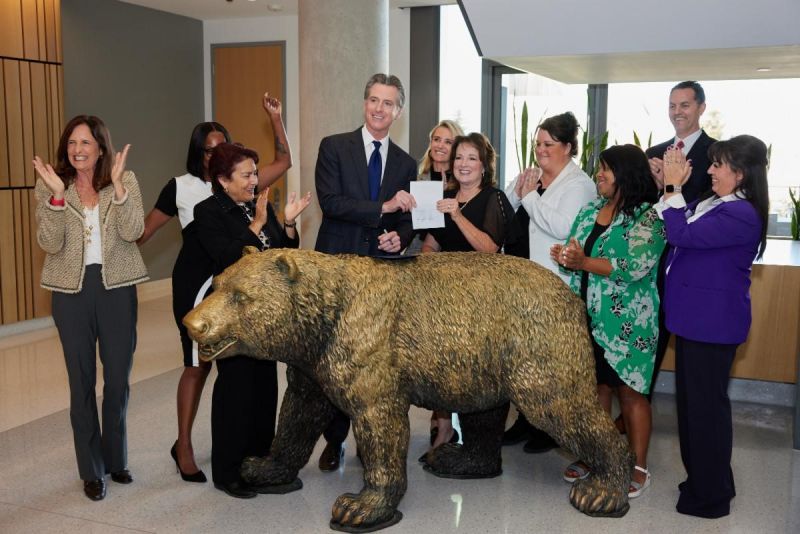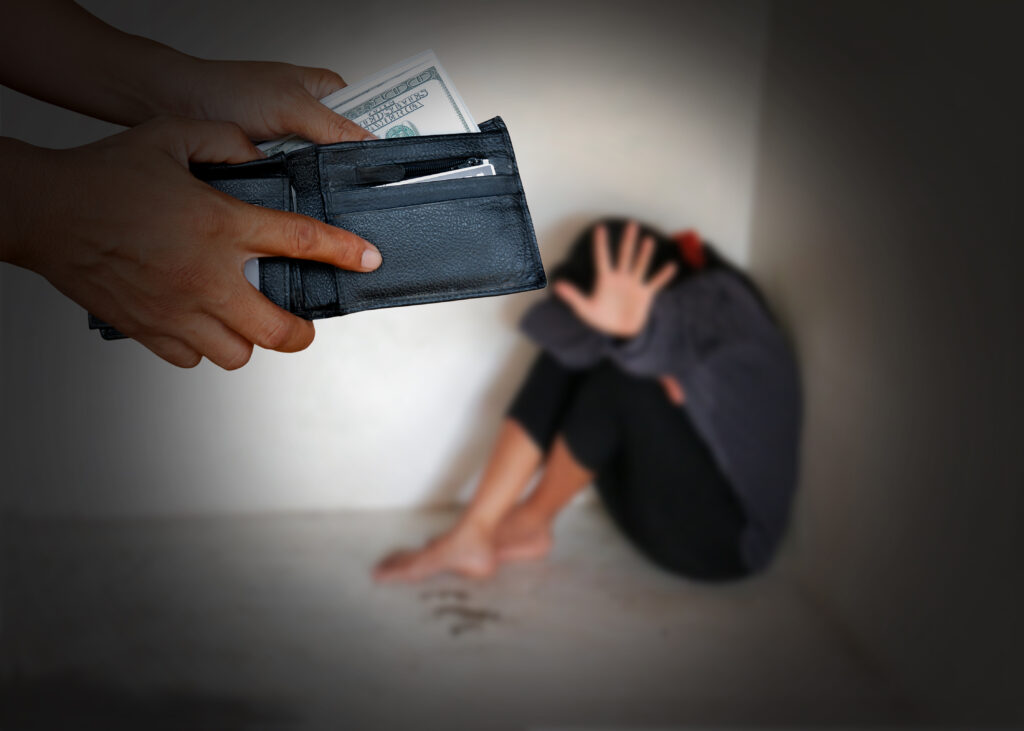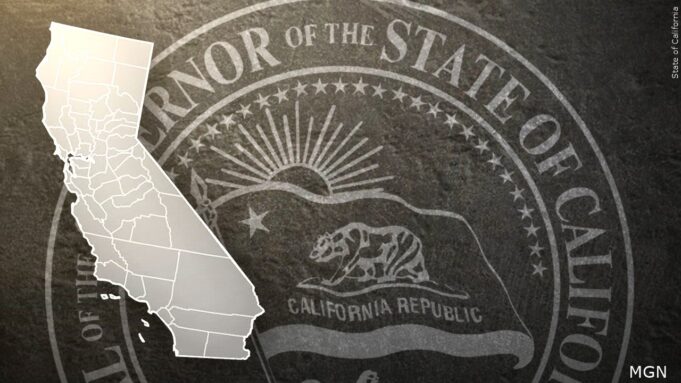California has passed a new law making anyone convicted of human sex trafficking a felony punishable with a prison sentence between 25 years to life under the state’s controversial “Three Strikes and You’re Out” law. But, some critics maintain that resources would be better allocated toward prevention and support for potential victims and at-risk populations. They argue that a punitive approach alone may not effectively deter sex trafficking and could overlook the potential to address its root causes.
Before Gov. Gavin Newsom’s passage of SB 14 on September 25, state law defined human trafficking as a non-serious crime. The new law amends the Penal Code to add sex trafficking of minors to the list of serious crimes under California law, and also classifies human trafficking as a strike offense, making those convicted of this crime subject to the same penalties that apply to all serious crimes.
Republican California Senator Shannon Grove of Bakersfield authored the bill which would make child trafficking a serious felony in the state, punishable by a sentence of between 25 years and life in prison.
Human trafficking is exploding across the country and could very well be described as a “crime of our time,” said Sen. Grove during a recent Assembly Public Safety Committee hearing.

“Sadly, California is a hub for human trafficking,” Sen. Grove stated. “In 2021, 25,000 children reported missing under the National Center for Missing and Exploited Children, who had run away from foster care services, was one in six likely human trafficking victims.”
According to data from the U.S. National Human Trafficking Hotline, groups marginalized by race, income, gender identity, sexual orientation and immigration status are more likely to be exploited through sex and labor trafficking, she continued.
Assemblymember Reggie Jones-Sawyer, a Democrat from Los Angeles and chair of the Assembly Public Safety Committee, had opposed the bill, stating that the use of a Three Strikes-type bill has never been a deterrent to any type of crime.
“Just focusing on the punishment aspect of a crime in any given policy removes the victim from the crime. Justice can only prevail if the victim has a pathway to healing,” stated Assemblymember Jones-Sawyer in a news release on July 13. The bill initially failed to pass in the committee but was reconsidered after Gov. Newsom stepped in.
Assemblymember Jones-Sawyer stated he is committed to protecting victims of sex trafficking, especially child victims, and that the lived experience of victims is traumatic and horrific. He noted that California already punishes child sex traffickers severely and said that activating and utilizing these laws has, at times, been underutilized within the courts and law enforcement systems, possibly due to a lack of knowing what laws are on the books.

For example, he noted that human trafficking of minors for sex is punishable by up to life in prison, and several sentencing enhancements may be applied depending upon the nature of the crime. Those convicted are also required to register as sex offenders.
“Unfortunately, the Three Strikes Model, which SB 14 is designed after, focuses only on punitive actions and does nothing for victims. Spending billions of dollars on punishment means those dollars are unavailable to help victims and prevent the crime from happening in the first place. Criminals already take up a disproportionate amount of funding—spending more to punish more is a poor use of state resources,” said Assemblymember Jones-Sawyer.
While the legislation intends to deter and severely punish traffickers, opponents like April Grayson, senior policy manager of Sister Warriors Freedom Coalition, raised several concerns about its potential implications. It will actively harm many survivors of human trafficking, especially the Black, Brown, Native, poor, LGBTQ women and child survivors already least likely to see justice, Ms. Grayson said.
She cried as she spoke in opposition to the bill during the July 11, hearing. As a criminalized survivor of human trafficking, she could see the positive intent of this bill, but she has been criminalized and demonized by the legal system that was meant to protect her, she stated.
Born into the Child Protective Services system, and kicked out when she turned 18, Ms. Grayson testified she was trafficked, criminalized by the court system, and made out to be the mastermind of a crime that she was also the victim of. Charged with pimping and pandering, she was sentenced to 20 years and eight months.
“But had I been sentenced today, I would have been charged with human trafficking of a minor,” Ms. Grayson said.
She served 17 years in state prison, where she received no referrals to healing or rehabilitative services, was considered a violent felon, and had to register as a sex offender.
“I have never been seen as a victim of human trafficking. I was only seen as the bottom, a perpetrator, even though I was 19 and my 27-year-old trafficker was sitting next to me in court, he was never identified as a trafficker, let alone my trafficker, and was never convicted of any trafficking or pimping charges in Sacramento County,” stated Ms. Grayson. “I am not a unique ase,” she added.
According to Ms. Grayson, more than 90 percent of human trafficking victims are criminalized by being trafficked, including many who have human trafficking charges instead of their trafficker. The solution is to properly investigate cases, provide healing resources, and prevent further harm against survivors by the criminal legal system, and pass legislation that would provide judges and juries with information necessary to identify victims, she recommended.
“Until we can protect victims from arrests, we must not pass laws that will further harm them, their families or our communities,” urged Ms. Grayson.
“I don’t support any strike legislation in a nation that is founded on our subjugation and that’s run through a system of structural racism,” stated Nola Brantley, founder of the advocacy and empowerment effort Nola Brantley Speaks.
She opposed SB 14, citing concerns about it being a gateway for the unjust arrests and mass incarceration of young victims as she has observed with federal legislation. Ms. Brantley pointed out that the U.S. Trafficking Victims Protection Act of 2000 automatically classifies children under 18 sex trafficked as a victim, but she alleged that in California, mostly Black children were still being arrested as prostitutes, though they weren’t old enough to consent to sex.
“I cannot support any Three Strikes law when I know that it will disproportionately impact Black and Brown people and sometimes not impact White folks at all, who are committing the same crime,” she told The Final Call. She added, “I don’t support it at all until this country gets equality in their justice system, I don’t care if it will punish some of the bad people. I need it to be just!”
According to a 2013 Department of Justice study examining the race of sex trafficking victims, 40.4 percent were Black, 23.9 percent were Hispanic, and 4.3 percent were Asian. Native American women and girls are victims of human trafficking at a much higher rate compared to the overall population.
The U.S. Trafficking Victims Protection Act of 2000 provides that “any commercial sex act if the person is under 18 years of age, regardless of whether any form of coercion is involved, is defined as human trafficking.” Therefore, if the victim is considered a minor, then force, fraud, or coercion do not need to be established; the sex act is automatically sex trafficking, according to law, noted the Office of Juvenile Justice and Delinquency Prevention.
They were minors, being used in prostitution, subjected to exploitation for profit, fitting the clear definition of human trafficking victims. Yet, due to their race, poverty, involvement in foster care or the juvenile justice system, children in California were persistently criminalized, Ms. Brantley told The Final Call.
“Some of these children went to jail dozens of times on prostitution charges when they were only 14, 15 or 16 years old and had not even reached the legal age to consent to sex yet,” she continued. But what has happened to all those children arrested previously, who didn’t receive any help, she asked?
“Now they’re adults, Black females, possibly still in the commercial sex industry, being criminalized as adults, looked down on, and not receiving what they need, but these were kids who were in a great position to receive help because the government and the system noticed them,” Ms. Brantley said.
Vanessa Russell, founding executive director of Love Never Fails, a San Francisco Bay Area nonprofit which addresses the issue of human trafficking nationally, supported SB14. It pertains to children only, not adults, and she feels that for trafficking a child there should be one strike, she told The Final Call.
She said she is not a fan of Three Strikes but agrees with the spirit of the law, which says that people are supposed to serve mandatory minimum sentences for serious crimes such as rape or murder.
“If you traffic a child, you need to serve the time, because you have committed a huge atrocity against that child and she or he will be traumatized for the rest of her life,” Ms. Russell said.
More funding must be allocated toward diversion programs so the first engagement with children is not when someone is trafficking them, she recommended. For example, for a person to traffic a child, they must undergo quite a bit of grooming themselves, such as being taught how to traffic and dehumanize their victims, Ms. Russell said.
“Some of the people who are committing these types of crime, I’m sure, are sociopaths. They just don’t care, they were born that way, but I choose to believe that the majority of these people that are committing these crimes are victims of some kind of trauma themselves,” Ms. Russell said.













